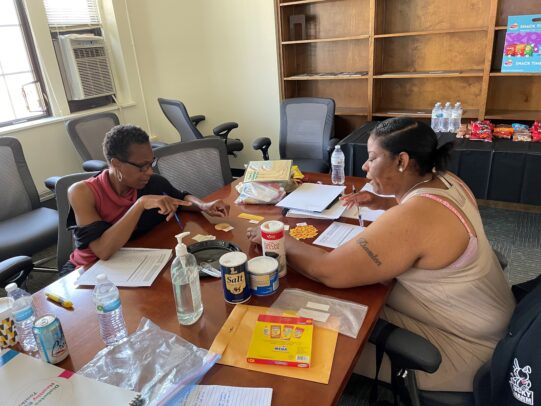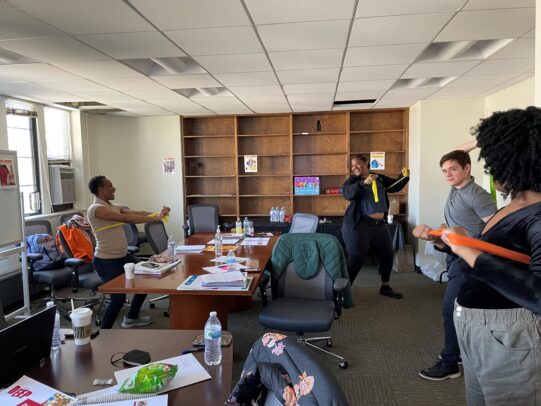Diabetes education program receives new grant to expand in Cook County

For nearly three decades, the Diabetes Empowerment Education Program, known as DEEP, has helped thousands of people across the country learn about the causes, risks and management of diabetes. With a new $1 million grant from the U.S. Centers for Disease Control and Prevention, the program born and based at the University of Illinois Chicago will expand its activities in Cook County and add new material on social determinants of health and Medicaid enrollment.
DEEP originated in 1996 at UIC’s Midwest Latino Health Research, Training and Policy Center, formerly part of the Jane Addams College of Social Work, as a program designed to reduce diabetes-related health disparities through a multicultural curriculum. A team led by Aida Giachello created a series of bilingual, accessible modules around topics such as physical activity, meal planning, glucose monitoring and medication that can be taught by trained community health workers.
The model has demonstrated success in helping participants take control of their diabetes and reduce their risk of complications and was recognized by the American Diabetes Association in their Diabetes Support Directory.
“It’s an approach in which the individuals are spoken to in their own language,” said Dr. Amparo Castillo, clinical associate professor of community health sciences at the UIC School of Public Health, and principal investigator for the new grant. “Not just because they may speak Spanish, but because the language has to be totally free from scientific lingo to make it palatable to low-income and low-education populations, who were — and still are — those with the worst outcomes related to diabetes.”
Since then, DEEP has published five editions of the Spanish curriculum and eight editions of the English version. It moved in 2019 to the UIC Office of Technology Management, where the program can be licensed by community-based and health organizations. In the 2010s, DEEP was included in the Center for Medicare & Medicaid Services “Everyone with Diabetes Counts” program, spreading it to all 50 states and two U.S. territories.
The new grant, from the CDC program “A Strategic Approach to Advancing Health Equity for Priority Populations with or at Risk for Diabetes,” will fund DEEP as it adapts its curriculum to modern technologies and creates more connections with Latinx and Black communities in Chicago and the surrounding area.
“It’s going to allow us to expand DEEP within Cook County to other organizations and increase the population that we’re serving,” said Kateri Castillo Nelis, manager of DEEP and project director on the CDC grant. “The initial intent is to reach out to 350,000 people in the county. For that, we need to make connections not only with the community but with the organizations that train community workers and have the experience in disseminating programs like ours.”
The program will also increase its efforts to enroll community participants in Medicaid and add new content to DEEP focused on social determinants of health and Medicaid enrollment. Because DEEP utilizes a train-the-trainers model that certifies people to teach the curriculum in their own organization or setting, adding these components will further disseminate this knowledge across communities.
“We know that the social determinants of health are not going to be able to be entirely covered by our program,” Castillo said. “But we will be able to at least help people identify those elements in which they can help themselves and connect them with more resources in the community.”
The DEEP team is currently building a coalition of collaborators to help achieve the goals of the new grant, seeking organizations, universities, clinics, faculty, engaged community members and businesses such as grocery stores. Interested parties and those with questions should contact Kateri Castillo Nelis at nelis@otm.uic.edu.
DEEP is a registered trademark of The Board of Trustees of the University of Illinois Chicago.

